Country
Culture
Community

country • culture • community
CPD Event | 10 Formal CPD points | 14-16 FEBRUARY 2024 | nIPALUNA (HOBART)
Welcoming Indigenous and non-Indigenous architects, designers, artists and thinkers from across Australia to muwinina Country, nipaluna (Hobart)
This three-day event will explore practical experiences, real world learning, and realistic action plans.
Participants will have the opportunity to gain ten (10) formal CPD points in a range of competencies including NSW mandatory topics: First Nations, Sustainability and NCC 2022.
Unique onsite activation events will each provide valuable opportunities to experience Country through the guidance of First People custodians.
With more than 20 fantastic speakers ranging from experienced architects in this space to university lecturers and first peoples’ advocates providing a wealth of knowledge, teachings and insights to instill a rich learning experience.
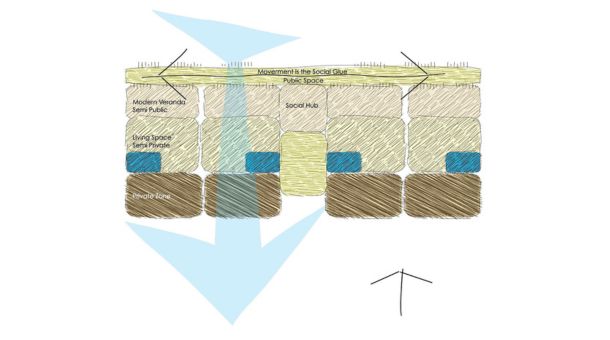
Image: Aunty’s House | Craig Kerslake Director NDI Nguluway Designinc
Aunty’s House rethinks the spatial planning of medium density residential design to bring community, health and support to the fore. Responding to the broad definition of ‘family’ in Aboriginal communities, this concept facilitates connection and care across households through a layering of spatial zones.
Program
Wednesday and Thursday Lecture program takes place at: Lecture Theatre 1, Menzies Research Institute and Medical Science, Medical Science Precinct, corner of Campbell and Liverpool Street Hobart (nipaluna)
DAY ONE WEDNESDAY 14 FEBRUARY 2024
| Session Time | Speaker | Type | Registration 8 -8:30 am (Breakfast served), Ceremony begins 9-10 | Welcome Ceremony - Patricia Hodge | Welcome |
|---|---|---|
| 10 -10:30 am | Professor Rufus Black, Vice -Chancellor and President University of Tasmania and Catherine Anderson | Keynote: Regrounding Sustainable Architecture |
| 10:30-11:30 am | Shaneen Fantin, People Oriented Design (POD) and Uncle Peter (Bumi) Hyde (gimuy walubara yidinji) | Conversation: Indigenous architecture and intercultural design |
| 11:30-12:15 | Dr Michael Mossman (kuku yalanji) (University of Sydney School of Architecture, Design and Planning) | Keynote: Aura Country Terror Refrain: Contextualizing Storylines in Architecture |
| 12:15-1:15pm | LUNCH | |
| 1:15-2:00 | Poppy Taylor + Mat Hinds, Taylor + Hinds Architects with Rebecca Digney (palawa), The Aboriginal Land Council of Tasmania | Keynote: Truth Telling at Wybalenna |
| 2:00-3:20pm | James Gilliland (yorta yorta) Clarke Hopkins Clarke Architects and Rian Ritter-Branthwaite, Director of Aboriginal Housing Services Victoria; Bianca Scaife (Cooper Scaife Architects) | Case Studies: Designing a paradigm for Indigenous social housing; Architecture as interpretive device - making cultural landscape legible for all |
| Afternoon Tea | ||
| 3:40 - 4:25 | Craig Kerslake, (wiradjuri) Nguluway DesignInc | Keynote: The Indigenous hand – Country centric narratives as vernacular expression |
| 4:25-5:10 | Michael McMahon (bundjalung) (Wardle) | Keynote: Linking material culture to country |
| Close 5:15. From 7-9pm Welcome Evening Function (THIS EVENT IS NOW FULLY BOOKED) |
DAY TWO - Thursday 15 February 2024
| Session Time | Speaker | Type |
|---|---|---|
| Breakfast and Registration 7:30, commences 8am-8:45 | Breakfast address - Chief Executive Cameron Bruhn and Professor Julian Worrall, Sarah Rhodes and Emily Paech | Breakfast Address : Biennale showcase: Unsettling Queenstown – The future of the open archive |
| 9-9:45 | Marni Reti (palawa and ngāti wai) (Kaunitz Yeung Architecture) | Keynote: Building with Country, Designing with Community & Compliance |
| 9:45-11 am | Kevin O'Brien (kuarareg and meriam)(BVN) | Keynote: Beyond the Façade |
| Morning Tea | ||
| 11:20-12:05 | Samantha Rich (wiradjuri) (walumarra studio) | Keynote |
| 12:05-12:50 | Troy Casey (kamilaroi) (Blaklash Creative) | Workshop: Partnering with practice - Indigenous perspectives and curatorial innovation |
| Lunch | ||
| 1:45-3:20pm | Aaron Roberts (Edition Office) and Daniel Boyd (kudjala, ghungalu, wanggeriburra, wakka wakka, gubbi gubbi, kuku yalanji, yuggera and bundjalung) (artist); Simone Bliss (SBLA Studio) *Pls note Aleshia Lonsdale has had to withdraw. | Case Studies: Artist-architect collaboration; Bendigo Kangan Place - Landscaping with Country |
| Afternoon Tea | ||
| 3:40-4:25 | Sarah Lynn Rees (palawa) (Jackson Clements Burrows Architects) | Keynote: Indigenous-Led Social Change: Atlantic Fellows for Social Equity |
| 4:25-5:10 | Jefa Greenaway (wailan, kamilaroi)(Greenaway Architects) | Keynote: Biennale showcase: Process and journey – speaking to identity and culture though architecture |
| 5:10-5:15 | Close | |
| Evening Function - Dark Sky Event at Tasmania Chapter office, Australian Institute of Architects 7pm 1/19A Hunter Street HOBART (nipaluna) |
DAY THREE - FRIDAY 16 FEBRUARY 2024
Registrants for Bruny Island (lunawanna-allonah) arrive at 1/19A Hunter Street HOBART (nipaluna) 8am for departure at 8:30am SHARP
Full day tour Bruny Island (lunawanna-allonah) (Early Bird ticket holders only) visiting Murrayfield Station a 4,100 hectare coastal property independently controlled by the weetapoona Aboriginal Corporation. Program concludes 2:30pm Return Hobart by 4pm (subject to ferry availability)
***Please note as we are subject to ferry variations, traffic etc the times on return are conditional. If you have a flight booked close to this time please let us know (email cpd@architecture.com.au). We may need to switch you to the Hobart Walking Tour
Standard ticket holders – Walking Tour Hobart (nipaluna) commence 9 am from 1/19A Hunter Street Hobart. (1-1.5 hours) Return 10:30 am
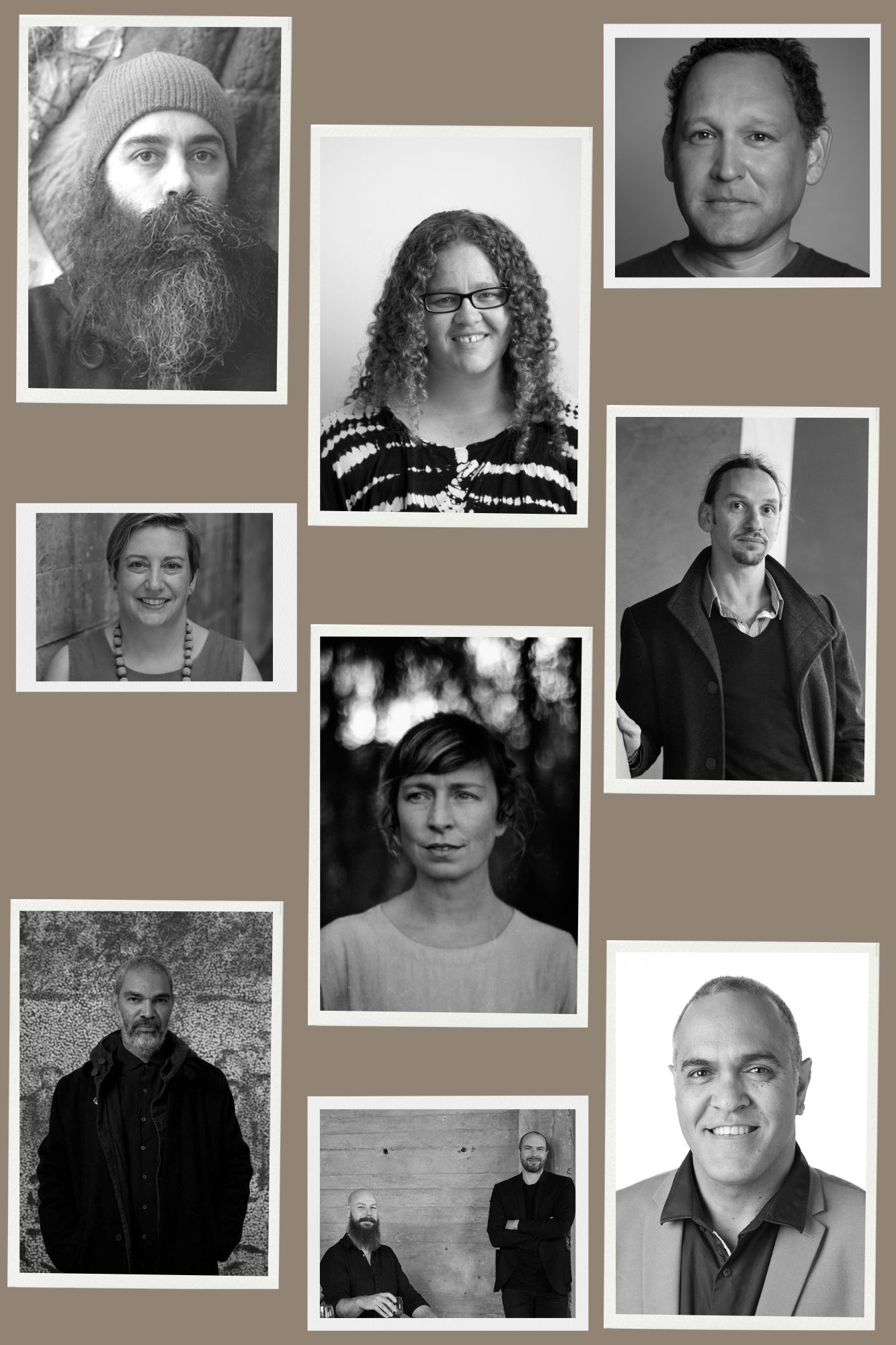
Drawing together Indigenous and non-Indigenous architects, designers, artists and thinkers from across Australia on Palawa Country, Nipaluna (Hobart), this three-day event will explore practical experiences, real world learning, and realistic action plans.
Participants will have the opportunity to gain ten (10) formal CPD points in a range of competencies including NSW mandatory topics: First Nations, Sustainability and NCC 2022.
Onsite activation events are included in the ticket price:
Welcome reception -14 February
Dark Sky Tasmania experience – 15 February,
Half-day tour of Murrayfields Station, Bruny Island -16 February,
Experience Country through the guidance of First People custodians.
See our full speaker list here
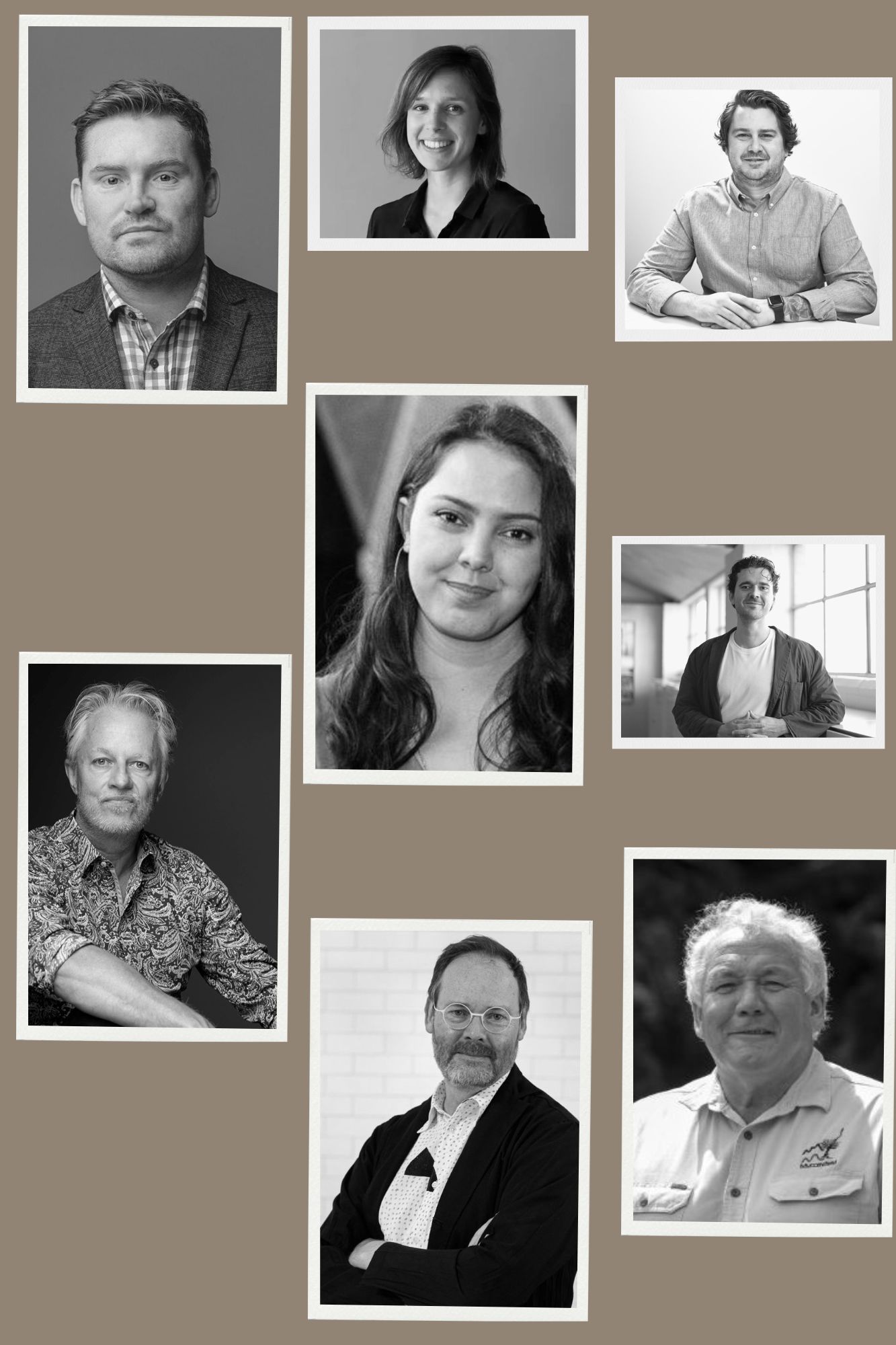
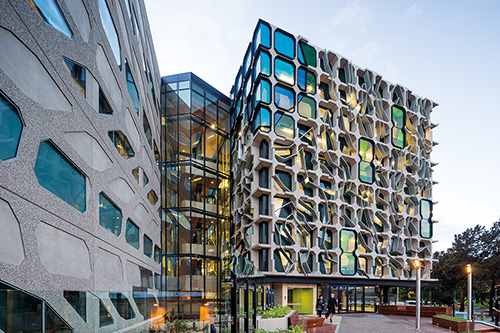
WHO SHOULD ATTEND THIS EVENT?
This event is open to member and non-member architects as well as all types of built environment professionals (town planners, engineers, designers, builders etc) that seek to further appreciate Indigenous culture in their work, broaden skillsets and work more meaningfully on projects that impact indigenous communities.
Learning outcomes include:
- Identifying successful approaches to intercultural design and artist collaboration
- Consulting effectively and engaging respectfully
- Balancing community needs and expectations with regulations such as the National Construction Code
- Realistic learning and action plans for regulatory compliance
- Cultural responsiveness, understanding of Indigenous aspirations
- Project budgeting and
- Integration of quality and performance standards considering environmental impact.
PLANNING YOUR EXPERIENCE
Booking includes individual admission to the full two-day Program of keynote and workshop presentations (14-15 February 2024), including a Dark Sky Tasmania experience.
Early Bird ticket holders will experience the Bruny Island tour (Lunawanna-allonah) 16 February 2024. (SOLD OUT)
Standard ticket holders will enjoy the nipaluna (Hobart) Walking Tour on 16 February 2024.
Activations
If you are travelling with guests you purchase add activation activities including the Dark Sky event. Read more here
Group Discount
A 10% discount is applicable for group bookings of ten (10) or more persons. Please email cpd@architecture.com.au providing your group booking details to take advantage of this offer.
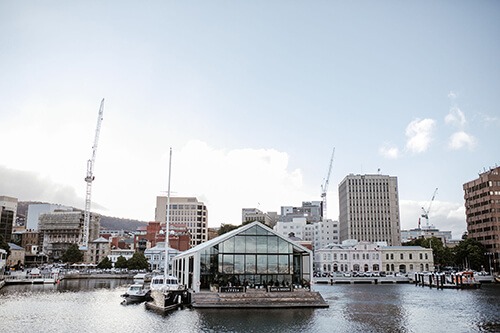
ACCOMMODATION
Bookings at special rates can be made through our portal via our Accommodation Partner
Special partner rates are available email registrations@conferencenational.com.au
CPD – LEARNING OUTCOMES
On completion of this program participants should be able to:
- Define in practical terms key concepts including connecting with Country, designing with Country, and engaging with Community
- Identify key elements of successful approaches to intercultural design and artist collaboration
- Describe features of effective consultation and engagement with First Peoples
- Balance community needs and expectations with regulations and requirements such as the NCC
- Incorporate environment-aware, eco-sensitive lighting principles into placemaking
- Recognise gaps in knowledge and skills required to meet NSCA 2021, and devise a plan for upskilling
- Demonstrate awareness of resources for learning about First Nations cultures, community, heritage
- Explain protocols for engagement through the project development and delivery phases
- Identify factors for evaluating material and fitting selections etc in terms of significance and impact for Country
- Use resources for researching Indigenous heritage and culture and identifying custodians of culture and knowledge
This event program will deliver outcomes related to the following Competencies from the 2021 National Standard of Competency for Architects:
Practice Management and Professional Conduct
- PC 1 Comply with the regulatory requirements and obligations pertaining to practice as an architect, including legislation, professional codes of conduct, obligations for continuing professional development and professional indemnity insurance.
- PC 3 Apply principles of project planning, considering implications for Country, environmental sustainability, communities, stakeholders and project costs.
- PC 8 Be able to implement culturally responsive and meaningful engagement processes that respect the importance of Country and reciprocal relationships with Aboriginal and Torres Strait Islander Peoples across architectural services.
Project Initiation and Conceptual Design
- PC 17 Have an understanding of Aboriginal and Torres Strait Islander Peoples’ aspirations to care for Country and how these inform architectural design.
- PC 20 Be able to assess project budget and timeframe against project requirements and objectives, relevant legislation, statutory planning requirements, building codes and standards.
- PC 24 Be able to prepare and analyse project development options in response to a project brief – its objectives, budget, user intent and built purpose, risk and timeframes, including environmental sustainability considerations.
- PC 27 Understand how to embed the knowledge, worldviews and perspectives of Aboriginal and Torres Strait Islander Peoples, shared through engagement processes, into the conceptual design in a meaningful, respectful and appropriate way.
- PC 29 Be able to develop and evaluate design options in terms of the heritage, cultural and community values embodied in the site, and in relation to project requirements.
- PC 30 Be able to explore options for siting a project, including integrating information and analysis of relevant cultural, social and economic factors.
- PC 34 Communicate conceptual design proposals and associated information to client, stakeholders and communities using appropriate and culturally responsive methods appropriate to different audiences.
Detailed Design and Construction Documentation
- PC 36 Be able to apply creative imagination, design precedents, emergent knowledge, critical evaluation and continued engagement with Aboriginal and Torres Strait Islander Peoples to produce a coherent project design. This should be resolved in terms of supporting health and wellbeing outcomes for Country, site planning, formal composition, spatial planning and circulation as appropriate to the project brief and all other factors affecting the project.
- PC 41 Be able to coordinate and integrate input from specialists and consultants into the detailed design and documentation.
- PC 45 Be able to nominate and integrate quality and performance standards with regard to selected materials, finishes, fittings, components and systems, considering the impact on Country and the environment, and the whole life carbon impact of the project. This includes integrating life cycle assessments and other expertise and advice from consultants.
contact us
Please contact the Institute’s CPD team with any enquiries:

